Julia Abronina
Presentation "Didactic games in the development of speech of preschool children"
Presentation on the topic: «»
Didactic games in the development of speech of preschool children Abronina Julia Alekseevna MBDOU Kindergarten No. 2 "Sun"
Good speech is essential child personality development. The richer and more correct a child’s speech is, the easier it is for him to express his thoughts, the wider his possibilities in understanding the world around him, the more meaningful and full the relationship with peers and adults, the more actively his mental development. But a child's speech is not an innate function. She develops gradually, along with its growth and development. Speech must be formed develop in combination with the general child development. It is much more successful to do this using games. Since in preschool age gaming activity is leading.
The game teaching method contributes to the creation of an interested, relaxed environment; increases speech motivation; encourages children to communicate with each other; the process of thinking is faster, new skills are acquired more firmly. Didactic The game is a great learning tool development used in the assimilation of any program material. Specially selected games and exercises make it possible to favorably influence all components speeches. In the game, the child gets the opportunity to enrich and consolidate the vocabulary, form grammatical categories, develop coherent speech to expand knowledge about the environment, develop verbal art, develop communication skills.
The relationship of educational areas through the system developing speech games communication cognition Artistic and aesthetic development socialization Physical culture Fiction.
Desktop-printed games used as visual aids to development visual memory and attention: "What grows in the garden, forest, garden?","What first, what next?","What does anyone need?", "Lotto"."Logic Train", "Where did I see it?" and etc.
Games with objects or toys aimed at development of tactile sensations, the ability to manipulate with various objects and toys, development creative thinking and imagination: "What changed?","Find and Name", "Score","Whose children are these","Who is more likely to collect?" etc. Verbal games help develop auditory memory attention, communication skills, and development of coherent speech. "Who needs what?", "Name three things", "Say one word". "Similar - not similar", "Who will notice the tales more." "And then what?", "Does it happen or not?" and other types didactic games.
Here are desktop printed games we have, and which we use in our work. This is a board game "Lotto", "Whose baby?", "Confusion".
Slide 7 "Big and small", "Kittens", "Fruit".
Slide 8 - 9
Games with objects.
verbal games: The game "Magic Words".
"Magic Flower"
"Soft Cubes"
Slide 13-14
Benefits that help educators in working with children.
These are Reference pictures for retellings of texts. Issue #1 and 2
Visually - didactic aids.» Speech development with children 3-4 years old», "Right or Wrong", « Development of speech with children 2-4 years old» other.
Poems and speech exercises topics: "Birds" "Wild animals" And etc.
It is also very efficient in speech development Articulatory gymnastics, gymnastics for the formation of fine motor skills of the hands.
So the use didactic games and exercises provides great opportunities for speech development in preschool children:
Speech motivation increases, successfully develop communication skills;
Providing psychological comfort;
Children memorize a large amount of speech material;
Higher mental functions are activated (memory, attention, thinking)
Didactic games are universal and their diversity and content depends only on your imagination and desire to work with children in a fun and interesting way.
Thank you for your attention!
Related publications:
Presentation "Didactic games for the development of logic, memory and thinking in preschool children" Relevance. Modern requirements of preschool education imply the need to find ways to develop mental logical techniques.
Didactic games and exercises on the formation of the grammatical structure of speech in children of middle preschool age Didactic games are an effective means of consolidating grammatical skills, because due to the dynamism, emotionality of the game.
Didactic games for the development of speech and literacy for senior preschool age Didactic game "Mushrooms with a secret." The development of speech. Literacy education. For older preschoolers. Material: Mushrooms (from Kinder.
Didactic games in the development of speech of preschoolers (from work experience) The shortest but most important period in the formation and development of a child is preschool childhood. This is the beginning of life. It can be compared to the morning dawn.
Consultation for parents "Finger games in the development of speech of children of primary preschool age" Consultation for parents of the early group "Finger games in the development of speech of children of primary preschool age". If the hands are clumsy, If.
“You cannot know the true history of your people without knowing the oral folk art” M. Gorky The relevance of using folklore in preschool educational institutions. Sometimes.
To use the preview of presentations, create a Google account (account) and sign in: https://accounts.google.com
Slides captions:
Completed by: teacher Chugunova Tatyana Viktorovna
Good speech is an important condition for the development of a child's personality. Speech must be formed and developed in conjunction with the overall development of the child. It is much more successful to do this using games.
Game activity is the leading activity.
creating an interested, relaxed environment; increases speech motivation; encourages children to communicate with each other; the process of thinking is faster, new skills are acquired more firmly. The game teaching method contributes to:
A didactic game is an excellent tool for learning and development, used in the assimilation of any program material.
Development of ZKR, phonemic hearing Enrichment of the vocabulary Development of speech creativity Development of coherent, grammatically correct speech Formation of sound analytical and synthetic activity Speech development Speech as a means of communication
Preschool game: Types of didactic games Board games are used as visual aids aimed at developing visual memory and attention. Games with objects or toys are aimed at developing tactile sensations, the ability to manipulate various objects and toys, developing creative thinking and imagination. Word games contribute to the development of auditory memory, attention, communication skills, as well as the development of coherent speech.
Enrichment of the dictionary: "Show me where?" “Who or what is it?”, “Wonderful bag”, “Who is doing what?”, Who moves how?, “Who does what?”, “From what parts?”, “What are they for?”, “Who is like a voice gives?", "Identical words", "Family of words", "The fourth extra", "Say the opposite." Development of coherent, grammatically correct speech: “What will the toy tell about itself” “What do clouds look like”, “Add a word”, “How are they similar, how are they different”, “Make a sentence”, “Hide the toy”, “What is not?” “Who, where is it?”, “One is a lot”, “Name it affectionately”, “Treat” “Whom do I love?”, “Whose baby?”, “Who works with what?” “What juice?”, “Who cares about whom”, “Who dreams of what?” “Whose toy”, “Mine, mine, mine” Development of ZKR and phonemic hearing: “What does it sound like”, “Who screams like?”, “Parrot”, “Soundtracks”. Development of speech creativity: “Make up a story”, “Compose it yourself”, “Think up a riddle”, “What will happen next?”, Formation of sound analytical and synthetic activity as a prerequisite for learning to read and write: “Find a sound”, “Collect a flower”, “Merry train "Collect the beads", "Paired pictures", "Where is the sound?"
For most children, the leading channel for perceiving the surrounding world is visual, which once again emphasizes the need to include techniques and methods for activating the visual analyzer in the work system.
In enriching the child's speech, in clarifying the words he already has, replenishing knowledge about the world around him, ball games are of great importance.
Thus, the use of didactic games and exercises provides great opportunities for the development of speech in preschool children: speech motivation increases, communication skills develop successfully; psychological comfort is provided; children memorize a large amount of speech material; higher mental functions are activated (memory, attention, thinking)
Didactic games are universal and their variety and content depends only on your imagination and desire to work with children in a fun and interesting way.
Thank you for your attention!
1 slide

2 slide
The development of children's speech is one of the main tasks of the cognitive and speech development of preschool children.

3 slide
Didactic games help to solve this problem, which are not only a game method of teaching preschool children, but also an independent game activity, a means of comprehensive development of the child's personality.

4 slide
Good speech is an important condition for the development of a child's personality. The richer and more correct the child's speech, the easier it is for him to express his thoughts, the wider his possibilities in understanding the world around him. Speech must be formed and developed in conjunction with the overall development of the child. It is much more successful to do this using games. Since in preschool age, play activity is leading.

5 slide
A didactic game is an excellent tool for learning and development, used in the assimilation of any program material.

6 slide
Specially selected games and exercises make it possible to favorably influence all components of speech. In the game, the child gets the opportunity to enrich and consolidate the vocabulary, form grammatical categories, develop coherent speech, expand knowledge about the world around him, develop verbal creativity, and develop communication skills.

7 slide
A didactic game is a valuable means of educating mental activity, it activates mental processes, arouses a keen interest in the process of cognition among preschoolers. The game helps to make any educational material exciting, causes deep satisfaction in children, stimulates working capacity, and facilitates the process of mastering knowledge.

8 slide
The idea of including a didactic game in the learning process has always attracted domestic teachers. Even K. D. Ushinsky noted that children learn new material more easily in the process of playing, and recommended trying to make classes more entertaining, since this is one of the main tasks of teaching and educating children.

9 slide
Important is the positive emotional attitude of children to such games. A successfully and quickly found solution, the joy of victory, success, approval from the educator have a positive effect on children, activate their thinking, and contribute to an increase in interest in cognitive activity.

10 slide
The didactic game develops children's speech: it replenishes and activates the vocabulary, forms the correct sound pronunciation, develops coherent speech, the ability to correctly express one's thoughts.

11 slide
All didactic games can be divided into three main types: games with objects (toys, natural material), board games and word games. Games with objects Board games Word games Didactic games

12 slide
For the convenience of using word games in the pedagogical process, they can be conditionally combined into four groups:

13 slide
Mandatory structural elements of a didactic game are: a teaching and educational task, game actions and rules. Structural elements of a didactic game Educational task Educational task Game actions and rules

14 slide
The vocabulary of a preschooler is significantly inferior in terms of vocabulary to an adult. The main task of developing speech through didactic games is to quantitatively enrich the child's vocabulary by increasing the amount of accumulated knowledge about the world around us, to activate and teach how to use it correctly.

To use the preview of presentations, create a Google account (account) and sign in: https://accounts.google.com
Slides captions:
"Didactic games and manuals for the speech development of preschool children in accordance with the Federal State Educational Standard" Prepared by Art. teacher MKDOU kindergarten No. 2 Oleinikova E.A. 2016
According to the Federal State Educational Standard for Preschool Education (FSES DO), speech development includes: possession of speech as a means of communication and culture; -enrichment of the active dictionary; development of coherent, grammatically correct dialogic and monologue speech; development of speech creativity; development of sound and intonation culture of speech, phonemic hearing; acquaintance with book culture, children's literature, listening comprehension of texts of various genres of children's literature; the formation of sound analytic-synthetic activity as a prerequisite for teaching literacy.
Correct speech is an important condition in the development of a child's personality. Didactic games help to solve this problem.
Good speech is an important condition for the development of a child's personality. The richer and more correct the child's speech, the easier it is for him to express his thoughts, the wider his possibilities in understanding the world around him. Speech must be formed and developed in conjunction with the overall development of the child. It is much more successful to do this using games. Since in preschool age, play activity is leading.
A didactic game is an excellent tool for learning and development, used in the assimilation of any program material.
The idea of including a didactic game in the learning process has always attracted domestic teachers. Even K. D. Ushinsky noted that children learn new material more easily in the process of playing, and recommended trying to make classes more entertaining, since this is one of the main tasks of teaching and educating children.
Specially selected games and exercises make it possible to favorably influence all components of speech.
All didactic games can be divided into three main types: games with objects (toys, natural material), board games and word games. Games with objects Printed board games Word games Didactic games Didactic games Games with objects Printed board games Word games
The vocabulary of a preschooler is significantly inferior in terms of vocabulary to an adult. The main task of developing speech through didactic games is to quantitatively enrich the child's vocabulary by increasing the amount of accumulated knowledge about the world around us, to activate and teach how to use it correctly.
At the age of 2-3 years, the baby must learn the names of items of clothing, dishes, furniture, toys that surround him in everyday life and arouse his interest. During this period, the names of the actions performed with these objects are also mastered.
At the age of four, the child's vocabulary is further replenished, with a more detailed deepening into the details and characteristics of the surrounding world. This is necessary to enhance differentiated perception and deepen knowledge about the features of objects, their purpose, structure and expand the understanding of qualities and properties.
The main task of didactic games for development at senior preschool age, along with further replenishment of the dictionary, is to teach the child dialogic and monologue speech. .In a playful way, special communicative situations should be created in which the baby must maintain a conversation, starting and leading a dialogue. Game moments are supposed in which the adult and the child change places and the child asks questions.
Thus, the system of modern didactic games for the development of coherent speech is a practical activity with which you can check whether children have mastered speech skills in detail or superficially and whether they are able to apply them when necessary.
Preview:
1 slide.
The topic of my presentation is "Didactic games and manuals for speech development in accordance with the Federal State Educational Standard"
2 slide.
According to the Federal State Educational Standard for Preschool Education: “speech development includes
Possession of speech as a means of communication and culture;
Enrichment of the active dictionary;
Development of coherent, grammatically correct dialogic and monologue speech;
Development of speech creativity;
Development of sound and intonation culture of speech, phonemic hearing;
Acquaintance with book culture, children's literature, listening comprehension of texts of various genres of children's literature;
Formation of a sound culture of speech as a prerequisite for teaching literacy”
3 slide.
Correct speech is an important condition in the development of a child's personality.The richer the child's speech, the easier it is for him to express his thoughts, the wider his possibilities in knowing the world around him, the more meaningful and full the relationship with peers and adults, the more actively his mental development is carried out.
4 slide
But the child's speech is not an innate function. It develops gradually, along with its growth and development. Speech must be formed and developed in conjunction with the overall development of the child.
Didactic games help to solve this problem, which are not only a game method of teaching preschool children, but also an independent game activity, as well as a means of comprehensive development of the child.
5 slide
Didactic game- an excellent tool for learning and development, used in the assimilation of any program material, as well as in independent activities.
6 slide
The idea of including a didactic game in the learning process has always attracted domestic teachers.
Even Konstantin Dmitrievich Ushinsky noted that children learn new material more easily during the game, and recommended trying to make classes more entertaining, since this is one of the main tasks of teaching and educating children.
7 slide
Specially selected games and exercises make it possible to favorably influence all components of speech. In the game, the child gets the opportunity to enrich and consolidate the vocabulary,
Build grammatical categories
develop coherent speech
Expand knowledge about the world around us, develop verbal creativity,
Develop communication skills.
8 slide
All didactic games can be divided into three main types:
Games with objects (toys, natural material),
desktop and
Word games.
9 slide
Object games such as Miraculous Pouch, Magic Box, Toy Store, Pick Up Toy, various ball games, etc.
10 slide
Board printed games: "Russell in the houses", "Where did I see it", "Funny alphabet", "Where are the letters hidden", "Tell me differently", "What's wrong?" etc.
11 slide
Word games “Finish the word”, “Finish the sentence”, “Name it right”, “Think up the end of the tale”, “Repeat the tongue twister”, “Dunno sent a letter”, “Say the first sound of your name”, etc.
12 slide
The vocabulary of a preschooler is significantly inferior in terms of vocabulary to an adult. The main task of speech development through didactic games is to quantitatively enrich the child's vocabulary, activate and teach how to use it correctly.
13 slide
At the age of 2-3 years, the baby must learn the names of items of clothing, dishes, furniture, toys that surround him in everyday life and arouse his interest. During this period, the names of the actions performed with these objects are also mastered. The game at this age is aimed at a general acquaintance with the outside world.
These are games for the development of speech breathing, in which it is necessary to achieve a long and distinct pronunciation of a specific sound: “Who is screaming?”, “The clock is ticking”, “Horses”, “Guess who came to us?”, “Drum”, “Donkey ”, “Rain”, “Whose dandelion flew further?” etc.
14 slide
At the age of four, the child's vocabulary is further replenished, with a more detailed deepening into the details and characteristics of the surrounding world. This is necessary to enhance differentiated perception and deepen knowledge about the features of objects, their purpose, structure and expand the understanding of qualities and their properties.
At this age, there is a further development of coherent speech, attention, thinking and activation of the child's vocabulary. Here, the games are already more complicated: “Pick up vegetables by color”, “What has changed?”, “Taste and smell”, “Guess the sound”, “What do you have?”, “Find out by description”, “Word game”, “ Guessing", "On the contrary", etc.
15 slide
The main task of didactic games for the development of speech at the senior preschool age, along with further replenishment of the dictionary, is to teach the child dialogic and monologue speech. In the form of a game, special communicative situations should be created in which the child must maintain a conversation, starting and leading a dialogue. Game moments are supposed in which the adult and the child change places and the child asks questions. This is also a puppet theater, performances at events and holidays.
Didactic games for:
Formation of plural nouns ("One - many"),
On the formation of adjectives from nouns ("Who is this?", "Whose is this?")
Exercise in the use of pronouns "Pick the right one"
Work on compiling sentences from individual words (“Think up an unusual story”, “A fairy tale in a new way”)
Exercise in changing verbs by number, gender, tense.
Work on the expressiveness of speech (These are various types of theater, performances at events and holidays)
Working with this age of children is more serious and painstaking.
16 slide
Thus, the system of modern didactic games for the development of coherent speech is a practical activity,
With which you can check whether children have learned speech skills in detail, or superficially
and whether they know how to apply them when needed.
17 slide
Thank you for your attention!
games for development at senior preschool age, along with further replenishment of the dictionary - teaching the child dialogic and monologue speech. .In a playful way, special communicative situations should be created in which the baby must maintain a conversation, starting and leading a dialogue. Game moments are supposed in which the adult and the child change places and the child asks questions.
the vocabulary of a preschooler is significantly inferior in volume to the vocabulary of an adult. The main task of developing speech through didactic games is to quantitatively enrich the child's vocabulary by increasing the amount of accumulated knowledge about the world around us, to activate and teach how to use it correctly.
The vocabulary of a preschooler is significantly inferior in terms of vocabulary to an adult. The main task of developing speech through didactic games is to quantitatively enrich the child's vocabulary by increasing the amount of accumulated knowledge about the world around us, to activate and teach how to use it correctly.
A didactic game is an excellent tool for learning and development, used in the assimilation of any program material.
A didactic game is an excellent tool for learning and development, used in the assimilation of any assimilation of any program material.
software material.
Presentation on the topic "The use of didactic games in the development of speech in preschoolers with OHP" will be interesting and useful to educators, teachers working in the logo group.
Currently I work in a speech therapy group with children aged 5-7 years who have a general underdevelopment of speech. In our time, the age of innovation and technology, there are more and more such children. Many of them are simply pedagogically neglected. And here it is important to use a differentiated approach to training and education.
As you know, the leading activity in children of a speech therapy group, as in a simple group, is a game. It is in this activity that the development of all components of the language takes place. Everything that is accompanied by the game is easily perceived, quickly and firmly absorbed by the child.
The paper presents a classification of games. A lot of them. I want to dwell on didactic games. Any didactic game carries certain information: close and understandable to preschoolers, attracts the attention of children for a long time. Children receive an emotional and cognitive charge, making them want to consider, act, play, return to this activity again. It is in the game and through the game that speech manifests itself most clearly.
There are over 500 didactic games.
They are grouped into 3 large groups. Each has its own structure, taking into account the interest of children. Its obligatory elements are: teaching and educating tasks, game actions and rules that the teacher sets and controls, but carefully so that interest in the game does not decrease. At the first stage, the author plays with the children, at the second, he watches how the children have learned the rules, and if necessary, I provide the necessary assistance, at the third, he watches from the outside how the children play independently according to the learned rules. In addition to the learning task, the game brings up perseverance, the ability to lose, rejoice at someone else's victory, the ability to follow the rules of the game. The duration of the game is no more than 5-10 minutes (individually and collectively).
Parents are actively involved in the life of our group. They help to replenish the developing environment, participate in master classes, round tables. Our joint play libraries help them see their child in a different environment than at home. Parents not only observe the course of the games, but are also participants in the process. After such toy libraries, they do their homework better, understand what a didactic game is hard for a child, and in what place they need to help, give in, create a situation of success.
Taking into account the personal achievements of the pupils, correctional work is planned and carried out using didactic games.
Didactic games carry not only a speech load, but also develop memory, attention, speed of reaction, coordination of movements and can be used in various activities, in sensitive moments by teachers and parents at home.

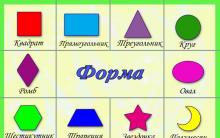
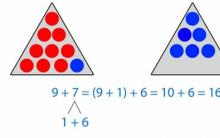
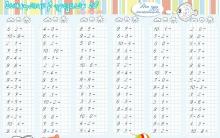
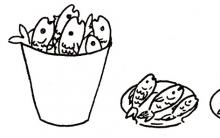
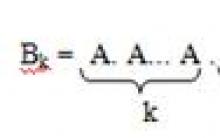





Map second language of geography
Literary games in elementary school Games for children in the library elementary school
Presentation "role-playing games in dow"
The green color on the physical map shows what the colors on the physical map represent
Intellectual game "through the pages of history"